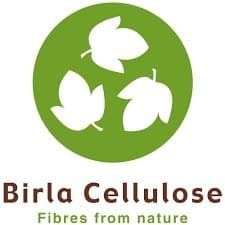Birla Cellulose, the pulp and fibre business of Aditya Birla group, has launched a new innovative fibre which imparts antimicrobial properties to textiles. Fabrics made from the new fibre kill 99 per cent of bacteria and viruses and stops them from re-producing. This makes apparel and home textiles safe without compromising on performance and fashion.
The antimicrobial property is achieved by adding an active ingredient (antimicrobial additive) during the finishing stage of the fibre manufacturing process. The ingredient stays with the fibre and does not leach out during the various downstream stages until it is woven or knitted into a fabric. The fabric made up of using the innovative fibre retains fluidity, inhibits odour, has long lasting freshness and is non-irritant to the skin. It can last multiple washes (around 50). The applications of the fibre are limitless – from apparel, athleisure, kids wear, suiting’s, accessories, intimate wear to even home textiles.
“Antimicrobial fibre by Birla Cellulose is another success which blends functionality with fashion,” said Dr. Ravinder Tuteja, GM & head-Product Development, at Birla Cellulose. “Thanks to our 3-step fortification process which we have adopted in manufacturing this fibre, the finishes at the fibre level will last through garment level while it passes through stringent conditions of temperature, pressure and chemicals.” The antimicrobial fibre has been tested under ISO standards and authenticated by international labs with standards like AATCC 100, JIS L 1902, ASTM E 2149. Another important feature of the special kind of fibre is that its antimicrobial property helps to kill all kinds of enveloped viruses including the coronavirus. A physical tracer has been embedded into the fibre which can be traced and tested at any later stage—be it yarn, fabric or garment, to see whether it is made up of antimicrobial fibre by Birla Cellulose or not.
Also, the Green Track platform, which is blockchain enabled, helps the end brand to have the entire visibility of the value chain – from forest to fashion. It also allows the value chain to see information one level up and one level down. For example, a spinner can see information of the fibre supplier and also the fabric manufacturer to whom he sells his yarn.

